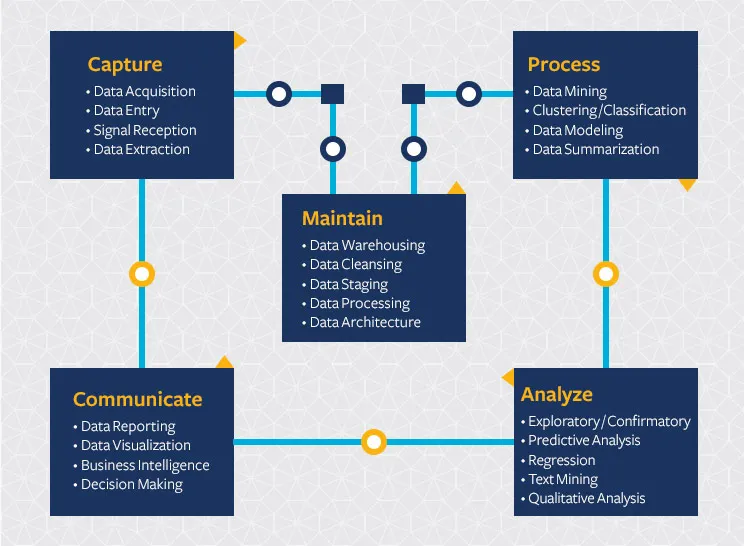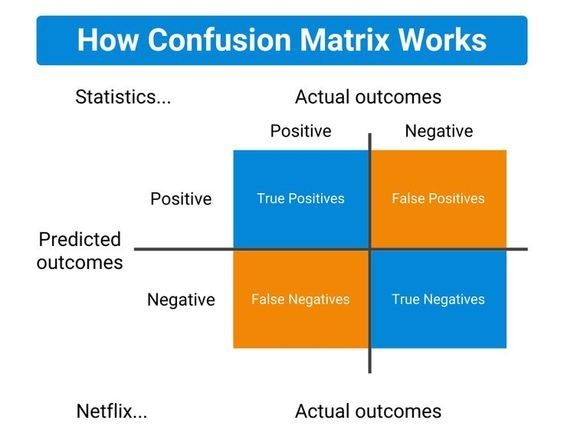Data science is an interdisciplinary academic field that uses statistics, scientific computing, processes, algorithms to extrapolate knowledge and insights from potentially structured or unstructured data. Also Data science continues to evolve as one of the most promising and in-demand career paths for professionals. Today, data professionals understand they must advance past the traditional skills of analyzing bigdata, data mining, and programming skills.
What is Data Science?
Data science is study of the massive amount of data, which involves extracting meaningful insights from structured, and unstructured data, that is processed using the scientific method, computer technologies, and algorithms. It is a multidisciplinary field that uses tools and techniques to manipulate the data so that you can find something meaningful. It uses the most powerful hardware, programming systems, and most efficient algorithms to solve the data related problems.
The term “data scientist” was coined when companies first realized the need for data professionals in analyzing massive amounts of data. Ten years after the widespread business adoption of the internet, Hal Varian, first dean of the UC Berkeley School of Information, and UC Berkeley emeritus professor of information sciences, business, and economics, predicted the importance of adapting to technology’s influence and reconfiguration of different industries.
Today, effective data scientists masterfully collect data from a multitude of different data sources, organize the information, translate results into solutions, and communicate their findings in a way that positively affects business decisions. These skills are now required in almost all industries, which means data scientists have become increasingly valuable to companies.
The Data Science Life Cycle
Figure represents the five stages of the data science life cycle:
- Capture
- data acquisition, data entry, signal reception, data extraction.
- Maintain
- data warehousing, data cleansing, data staging, data processing, data architecture.
- Process
- data mining, clustering, classification, data modeling, data summarization.
- Analyze
- exploratory, confirmatory, predictive analysis, regression, text mining, qualitative analysis.
- Communicate
- data reporting, data visualization, business intelligence, decision making.
Data Science Prerequisites
Technical Prerequisites
- Machine Learning: Data science uses machine learning algorithms to solve various problems.
- Mathematical Modeling: Mathematical modeling is required to make fast mathematical calculations and predictions from the available data.
- Statistics: To extract knowledge and obtain better results from the data, understanding of statistics is required, such as mean, median, or standard deviation.
- Programming: Knowledge of programming language is required for data science. R, Python, Spark are some required computer programming languages for data science.
- Databases: Understanding of Databases such as SQL, is essential for data science to get the data and to work with data.
Non-Technical Prerequisites
- Curiosity: When you have curiosity and ask various questions, then you can understand the business problem easily.
- Critical Thinking: It is also required for a data scientist so that you can find multiple new ways to solve the problem with efficiency.
- Communication skills: Communication skills are most important for a data scientist because after solving a business problem, you need to communicate it with the team.
In short, we can say that data science is all about
- Asking the correct questions and analyzing the raw data.
- Modeling the data using various and efficient algorithms.
- Visualizing the data to get a better perspective.
- Understanding the data to make better decisions and finding the final result.
Recommended for you:
Data Distribution in Data Science
What is Data Mining?





MOST COMMENTED
Tutorial
Important Methods in Matplotlib
Machine Learning
Bias and Variance Tradeoff Machine Learning
Tutorial
Multiclass and Multilabel Classification
Machine Learning
Reinforcement Learning in Machine Learning
Deep Learning
Alexnet Architecture Code
Machine Learning
Machine Learning Models Explained